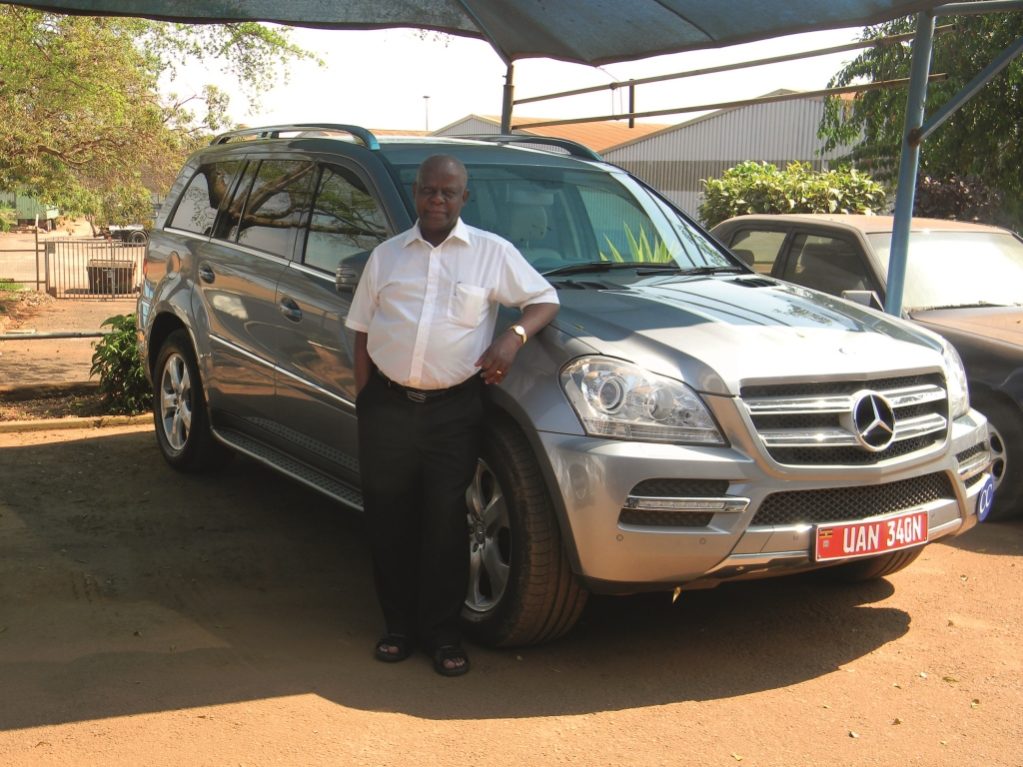There are few entrepreneurs in Africa who can claim to have been imprisoned three times by Idi Amin for allegations of being a political threat. There are fewer still who can say they were forced into exile in Europe and imprisoned by the Uganda National Liberation Army for four-and-a-half months. This is the story of Gordon Wavamunno, Ugandan entrepreneur—a man who didn’t go to high school but who holds three honorary doctorates and is worth millions.

“It has not been easy, but one has to eat and one has to persist,” he says.
Building a successful business in Uganda is hard enough without the complication of political instability and persecution. Wavamunno, founder and chairman of the Spear Group of Companies, knows this all too well. The Ugandan businessman has built a $30-million empire despite his country’s turmoil.
Wavamunno chose business over high school. He began training at his father’s trading business, moved up to become a cashier, and ventured into the produce-buying business in 1961. It was a prelude to breaking away from his father’s business.
Loading...
This busy and self-proclaimed “shrewd businessman” spent a decade growing his transport fleet. When Ugandan president Idi Amin nationalized the only motor company in Uganda, Wavamunno saw an opportunity in the market and approached Daimler-Benz for a possible franchise. It was the beginning of a 34-year-old business relationship that has survived political upheaval. Daimler’s decision to enter Uganda during the violent rule of President Amin was surprising, but it paid off.
“1971 to 1988 was a hard time,” says Wavamunno with typical understatement.
It was during this time that Wavamunno was thrown into cells and had to rebuild his business over and over again. Yet despite these crises, he has been
voted Businessman of the Year in a poll by a national newspaper for 10 years running.
He attributes his success to his will, support from banks, good managers and his principle of diversification. In his career he has ventured into transport, tourism, dry cleaning, hotels, television and radio, banking and property.
But how do you keep track of all your eggs in many baskets?
“I believe in what I’m doing. If there is an opportunity, then one should go after it. This is the key to success,” says Wavamunno.
He is also a man who demands much from his employees.
“You need to make sure that they are there to work for the company, not to throw it in the fire. The people who work for the company own it more than the shareholders do,” he says.
There were mistakes along the way. Wavamunno cites his worst business blunder as a $4 million foray into flower export. Heavy winds destroyed his first crops, sending him running back to the bank. There was also poor advice, leading to Wavamunno planting the wrong variety of flowers.
By the time the flowers were ready, the market had dropped. Since then, the farm has recovered and is looking to expand.
Wavamunno believes there is a lot of potential in Africa and feels that the continent can do better. He adds that a lot relies on the integrity of leaders to improve the living conditions of African people and improve skills.
“Uganda has recently discovered some oil; we have minerals, but we are still backward,” he says.
Looking forward, Wavamunno is working on a $60 million project with partners.
“Currently, our organization is involved in investing in three core countries, namely Kenya, Uganda and Southern Sudan.”
His message to young African entrepreneurs?
“First and foremost, young Africans need training and exposure; they have to accept that they cannot get rich within a day, month or year… most important is confidence in themselves and their countries. The future is bright for Uganda and East Africa as a whole.”
Wise words, from a wise old African.
Uganda In A Box
To say that Uganda has been through some rough seas would be putting it mildly. In 1966, Uganda was under the authoritarian rule of Milton Obote. In 1971, Idi Amin declared himself president. Amin was toppled in 1979, after eight years of political and economic collapse. It was during this time that he expelled Asians from the country. Obote won the 1980 elections but was replaced by General Okello in 1985, who was replaced by Yoweri Museveni in 1986. Uganda has since reached economic stability and operates under a ‘non-party’ political system with Museveni as head of state and of government.
Loading...
